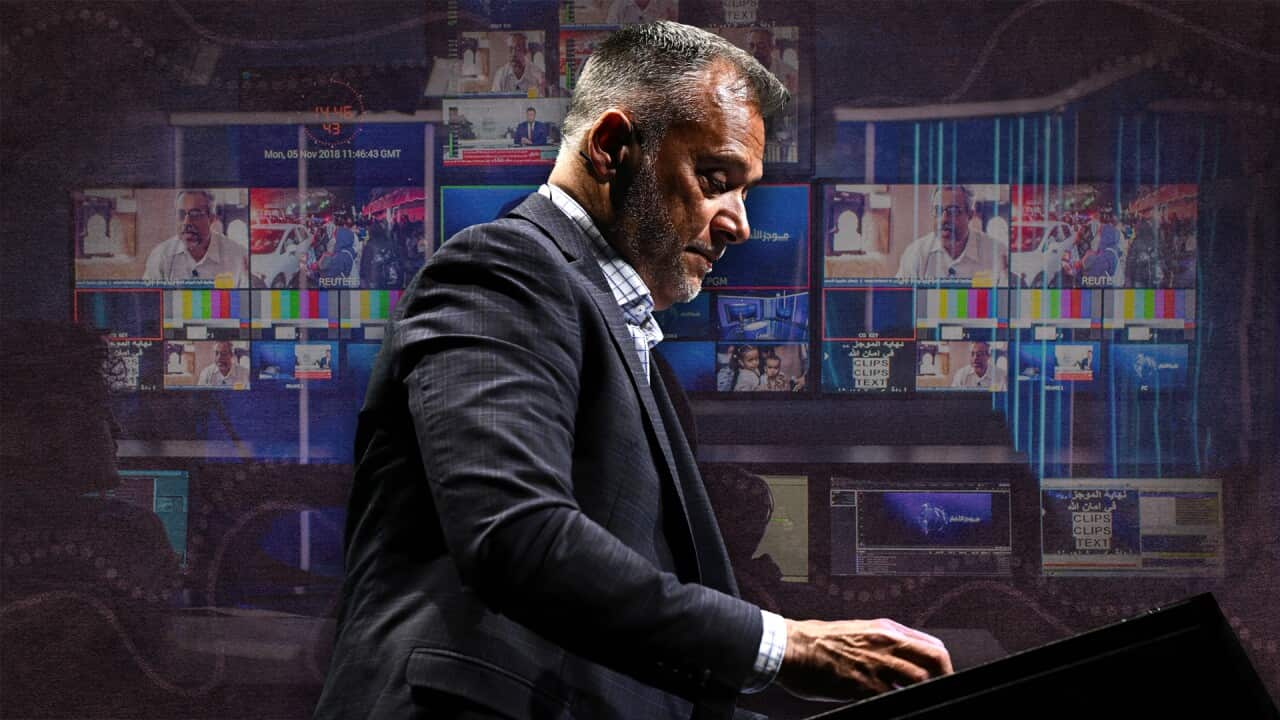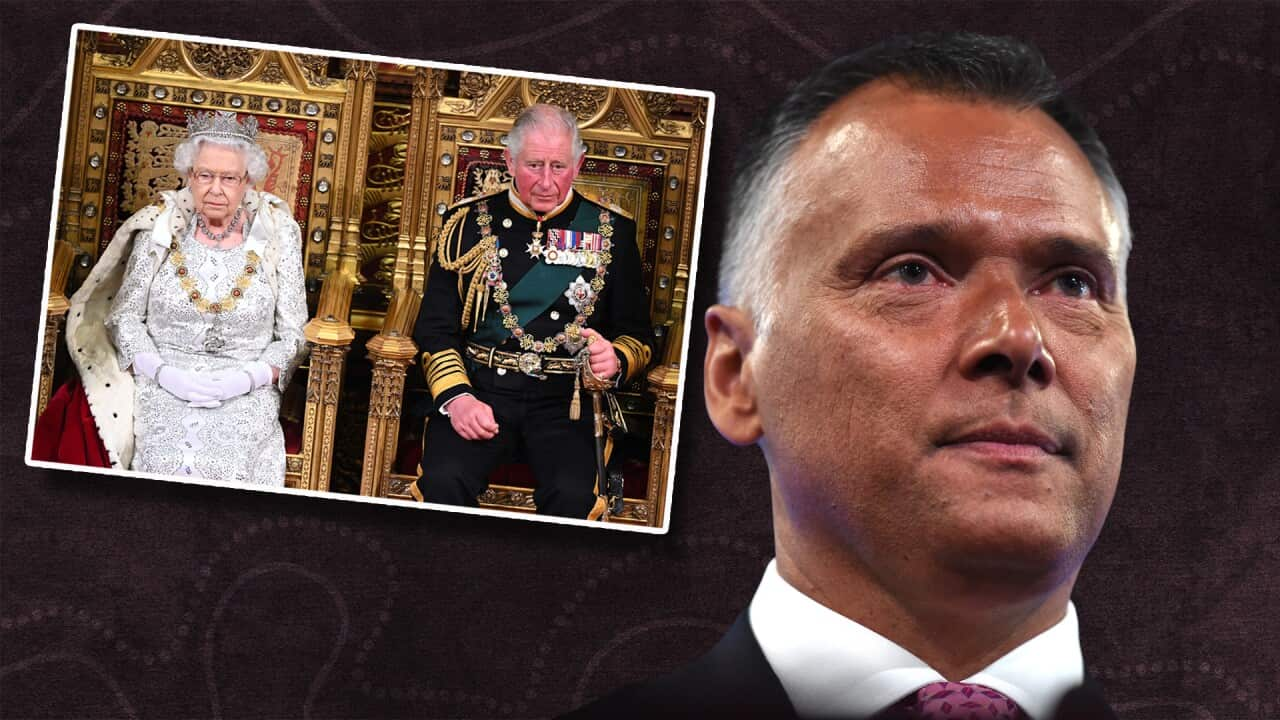Stan Grant has been thinking about time.
Beholden for the decades of his stellar career to a churning news cycle, his dramatic departure from journalism last year has afforded space for a return to old passions.
“Since I got out … I've been doing much more stuff that [relates to] the things I studied,” he told NITV.
“I studied physics, philosophy, and theology … St. Augustine, who I looked at in my thesis, was talking about time; I studied quantum physics: that's all about time.”
His reflections on time are going into a new book; he’s also working on both a quantum physics project and a theological project with two separate universities.
Aside from a weekly column in a weekend newspaper, his break from media could hardly be more complete.
Like any Blak man in the public eye, Grant was no stranger to opprobrium; as one who dared to speak honestly about race relations in Australia, he was a lightning rod.
But even he was unprepared for the months-long maelstrom of vitriol that led to his resignation from journalism in May last year.
Prompted by his reflections on colonisation during the ABC’s coverage of Queen Elizabeth II’s funeral, the outrage, often fuelled by conservative media, was vicious.
,; .
The experience scarred him: after 40 years in the job, Grant is scathing of his former profession.
“We're driven to do stories by focusing on points of conflict,” he says.
“What's going to get [the audience] generating anger, generating division? Journalists have convinced themselves that that's what the role of a journalist is.”
Social media’s role in that has been noted before: siloed communities, isolated from dissenting opinion, can no longer entertain divergent thought. Desperately trying to salvage its decimated audience base, legacy media has emulated the viral outrage model of those platforms.
But as Grant points out, it doesn’t seem to be serving them.
“The public doesn't want it, they don't watch it. The public are turning off in droves.”
Trust in institutions, including the media, is at historic lows; distrust is steadily increasing and nearly 70 per cent of the country engages in ‘news avoidance’.
With that exodus, the ability of the media to facilitate complex national discussions is rapidly disappearing.
Speaking at the inaugural SBS Elder in Residence Oration for NAIDOC Week, Aunty Rhoda Roberts AO referred to the bruising example of last year’s Voice to Parliament referendum.
Stream free On Demand

Elder in Residence Oration 2024
program • Public affairs
PG
program • Public affairs
PG
“We’re adapting, evolving, adjusting to a new digital future,” she told a crowd of NITV journalists.
“So did we deliver all aspects of the referendum debate? Was there a fostering of informed discussions? When journalists are compiling stories, whose truth is it?
“Content will shape that public discourse … we must look beyond to the conversations that engage.”
Grant is of the same mind; where by and large he sees the “redundant” model of mass media disappearing, spaces for discussion remain relevant.
“With the proliferation of technologies that transform the media landscape, and create more intimate spaces for conversations … in podcasts and other things, there is potential there to create the sort of life affirming, soul enhancing dialogue that is necessary for a civilised society.”
Civilised is not a word Grant uses to describe his former profession; far stronger language is reserved for that.
In a recent column for The Saturday Paper, Grant, no doubt relishing the opportunity for theological musings, wrote about the origins of evil.
“Modernity is an evil space. And mass media is a production of modernity,” he says.
“Human beings are capable of monstrous acts … but evil is not the evil act. Evil is the absence that creates the act itself.
“So media is an absence, not a presence: it is an absence of civility, it is an absence of grace, it is an absence of love, it is an absence of kindness.
Grant says it wasn’t always this way: even in the midst of covering the horrors of war, he sought to find stories of humanity’s better natures.
“But increasingly journalism has become captive to the worst impulses in our society, which are divisive impulses, and things that should be life enhancing like identity … have actually become soul destroying, and pitting people against each other.
“And the media is the heart of that. So on that basis, if evil is the absence of the good, then the media is, at its worst, evil.”
Grant’s own absence from the media space was lamented by many: the ABC, the media, and the country at large had to reckon with the fact one of our most respected journalists was not permitted to do their job.
But Grant himself is content; he proudly admits he avoids engaging with the news cycle, instead spending time on Wiradjuri land, reflecting on more eternal matters: “ancestors, Country, God”.
Meanwhile, he says the future of public discourse, if it is to have one, must lean into precisely those elements it currently eschews.
Nowhere is this more pressing than for First Nations people.
“The [country] don't know us,” he says, “and to an extent we are part of that problem.
“Because for too long, the face that has been presented to the Australian public has been a face of anger, bitterness, or resentment. It's not that we don't have a lot to be angry and bitter and resentful about. I have a lot of that in me.
“But is that the person you want in your home?
“We need to find a place where we can recognize the good, and deal with the bad, and to create spaces where our people's voices can be heard with kindness and love,” he says.
“Where we can have those really hard conversations about the injustice of our country, and the ongoing suffering of our people.”











